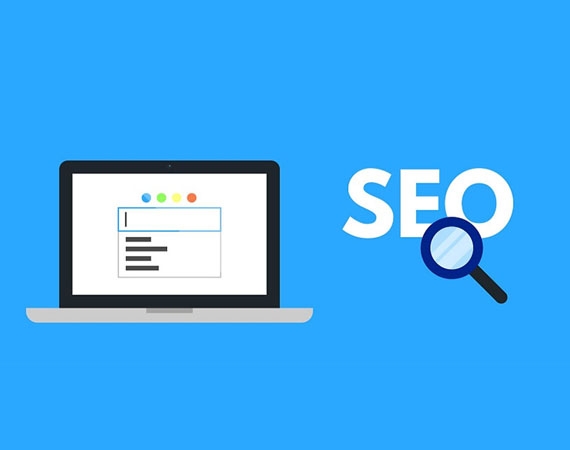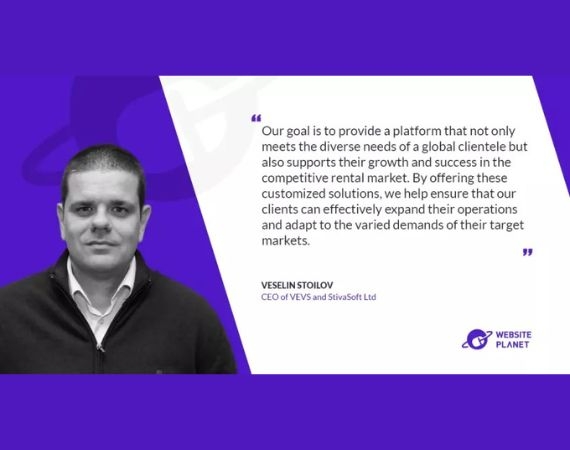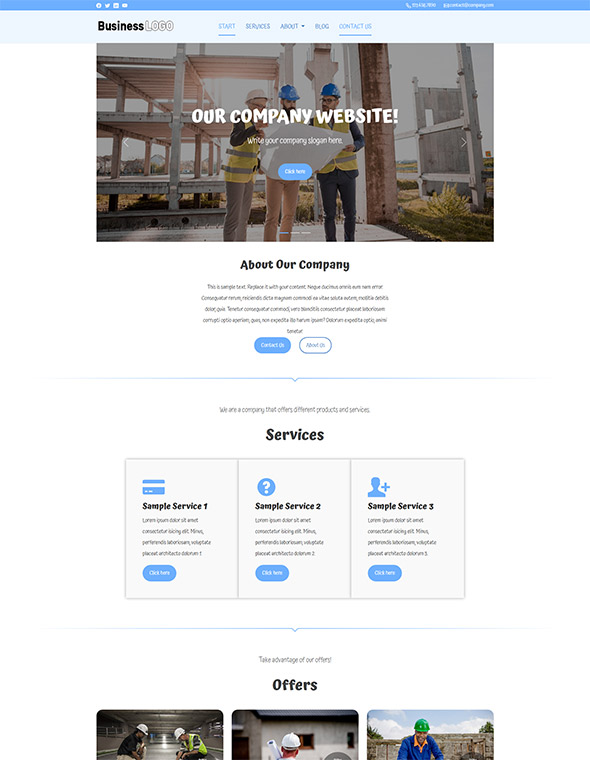In order to succeed in organic search, it requires optimizing a range of factors that search engines consider important, such as technical, on-page and off-page.
In this blog post, we are going to specifically focus on ‘On-Page SEO’, as well as give you more information on how to get FREE SEO Onsite Optimization for your car rental company, so stay tuned!
What Is On-Page SEO?
For those of you that are not familiar with On-Page SEO, it is the practice of optimizing individuals web pages in order to rank higher in the search results and earn more relevant organic traffic from the search engines.
Over the years, more and more focus has been placed on Off-Page SEO techniques, such as link building, social media marketing and influencer marketing. However, the reality is that without paying attention to On-Page SEO, Off-Page SEO won't do much good.
On-Page SEO includes optimizing a web page's content (e.g. headlines, tags and images), performance (speed, source and HTML) and its user experience.
It is important to note that good page performance requires mostly technical optimization, but can still be improved by doing things like creating efficient meta tags and optimizing content sources like images.
Why Is On-Page SEO Important?
The main reason why On-page SEO is important is because it helps search engines understand your website and its content. This inturn helps to identify whether it is relevant to a searcher’s query. And with Google’s library of highly complex algorithms, they are able to understand exactly what users are searching for when they type a search query, and are able to deliver search results that meet the users intent.
It is essential that you make sure that your website's content, both what is visible and not visible to users, is well optimised. Content is what visitors come for and that is the core of Google’s evaluation and what it shows to its users.
When reviewing a web page, the search engines send out ‘crawlers’ or more commonly known as ‘bots’. It is not only important that the bot understands the page and its content, but to make sure that the web page includes valuable and relevant information that the search engines will want to show in the SERPs (Search Engine Results Pages).
Also, Google tries to ‘see’ the web page from a human perspective, by evaluating the user experience. This means there are two fundamentals that Google is checking for on a web page- 1) whether or not they are able to understand the page in order to evaluate, index and rank it 2) the user experience and how a human interacts with the web page.
Many businesses focus on optimizing web pages for Google and not users. This means they often forget about user experience as a factor, and adopt practices such as keywords stuffing or robotic like content. Remember, you are creating content for people, and not just for the search engines.
The user is the one that reads and engages with the content. The search engine simply analyses it and chooses whether or not to rank it based on its relevance to users. So make sure to perform your On-Page SEO practices with the intent of benefiting the user, and then the search engine.
6 Ways To Optimise A Web Page Using On-Page SEO Techniques
There are a number of factors to consider when performing On-Page SEO. They will help to increase your search traffic, boost your rankings, improve the user experience and even increase conversion rate.
We have compiled a list of 6 On-Page SEO techniques and how to use them to achieve good On-Page optimization.
High Quality, Relevant Content
Content is a fundamental element of any successful website, and not just content, but the right content. There is way more to successful content marketing than just content. You need to make sure that you are creating content that is going to drive traffic and grow your business.
Google themselves say this:

In regards to On-Page SEO, content is the factor that you have the most control over. The content of a web page is what makes up most of it, therefore having one of the biggest impacts when it comes to the evaluation, indexing and ranking of web pages.
When considering content as part of your On-Page SEO strategy, make sure to adhere to the following guidelines. Content must be:
- Interesting To read
- Is In-Depth & Well-Written
- Is Written With The User In Mind
- Solves A Problem
- Is Easy To Share
- Is Optimised For At Least One High Volume Keyword e.g. ‘On-Page SEO’
Make sure to always perform keyword research when writing new content. This will not only make sure your content is using the correct terms, but also increasing your chances of having said content rank in the search engines. Keyword research falls under something called SEO (Search Engine Optimization) If you would like to learn more about SEO and how it can lead to more customers for your business, check out our blog post What Is SEO & How Can It Lead To More Customers For Your Business.
Long gone are the days of 300-500 word blog posts, keyword stuffing and duplicate pages. Google’s algorithms are now way too complex for those to still work. The diagram below is a great example of how content length affects rankings. It shows the average content length of top 10 results.

Site Speed
Google cares a lot about page load time. According to the Google Webmasters Blog, this is what they say: “At Google, we’re striving to make the whole web fast”.
Also, a study done by Neil Patel found that a delay of a single second in page response time can yield a 7% reduction in conversions.
This diagram shows how different loading times impact bounce rate.

So, it is probably clear by now that site speed massively affects search rankings! But what you may not know is what you can do to increase your site speed.
Some of the things to optimise for to increase your websites overall site speed include:
- Compress image files to reduce their file size. We recommend making sure all image files are .jpg format and less than 350kb in size for large images and less than 100KB for small and medium images for optimal results. When it comes to image size, bigger isn't always better, as uploading multiple large images can have a damaging effect on site speed and so performance.
- Being conscious of page size and not overcrowding web pages with information.
- Choose a good hosting server for your website. Here at VEVS, we can take care of your website hosting for you . VEVS hosting services are 100% reliable and strictly monitored by professional server administrators.
The VEVS team of experts do their best to achieve great performance when it comes to site speed. By taking care of things such as http requests, browser caching and all the other technical aspects of site speed, we can make sure your website is running both efficiently and smoothly, and let our clients focus on the main aspect they can control- content, meta tags and image optimisation.
Meta Tags
In on-page SEO, the two major types of meta tags that you should pay attention to are:
- Title Tags
- Meta Description
The Title tag is the very first HTML element that specifies your web page for search engines and to visitors. Technically it is not a meta tag, however, we always comment on it when it comes to tags. Title Tags are used to define the title of your web page or content. When writing a title, it should be short, clear and descriptive. We recommend keeping the Title Tag under 60 characters as that will ensure it will display properly and completely in the search result snippets.
The Meta Description is the element that provides a summary of your web page. Search engines typically show the Meta description in search results just below your Title tag. This is what search engines use to gauge what topic you’re writing about and the exact audience that they should send to that page.
When using Meta Tags, you should make sure that they describe your web page. The title tag should give a clear definition of what the web page is about and the meta description should provide a summary of the web page, so that those reading it in the search results are encouraged to click through.
A few ways to increase your websites click through rate using Meta Tags include:
- Don’t use duplicate tags. The reason being, if two web pages rank next to each other, they will look the same in the search results. Not only does this not provide the user value, it may harm your rankings as one of the factors Google optimizes for is user experience.
- Be descriptive. Make sure that your meta tags include enough information, not only to provide the user with what the web page is about, but also to entice them to want to find out more.
- Don’t use quotation marks. This can lead to the remaining text after the quotation marks to be cut off. If you are using quotation marks in your meta descriptions currently, remove them immediately as this could be affecting your click through rate massively.
Backlinko conducted a study that analyzed 1 million Google search results, and they found a correlation between keyword-rich title tags and first page rankings.
Here at VEVS, our website builder allows you to edit your website's meta tags easily with the click of a few buttons. We give you full control of the meta tags so we can focus on making sure all the technical optimisations are effectively implemented and optimized.
For more information on Meta Tags, make sure to check out our Knowledge Base to learn about their importance and how best to use them.
Page URL
The page URL is the text that comes after your website domain in the search bar. For many, the URL is simply just a way of referencing a specific web page on a website. However, from an SEO perspective, the URL holds a lot of key information.
We have put together some best practices when it comes to choosing web page URLs and how you can optimize them:
- Always create readable URLs. If a human cannot easily read the URL and understand what the web page is about, neither can the search engines.
- If you make a change to a URL, make sure to use a 301 redirect. If you don’t then the web page will become a dead end, and lose its rankings.
- Add target keywords in your URLs. Search engines do look through the text of a URL so make sure your target keyword is included in the URL. This links back to the point that search engines are always looking for relevant content to show their users.
An example of a bad URL would be:
‘https://www.vevs.com/kbarticle-235648’
An example of a good URL would be:
‘https://www.vevs.com/5-search-engine-optimization-tips’
Optimizing For Crawlability
If your website is not easily crawlable, then you are going to have a hard time ranking within the SERPs (Search Engine Results Pages).
Search engine crawling is part of the discovery process and involves “crawlers” or “spiders” being sent out across the search engine with the purpose of discovering both new and updated content. They do this through the use of links and this helps them to navigate both web pages and websites. Two of the most important factors for good rankings are related to the process of how the search engines find and crawl your website:
- How easy to find is your website - that is a signal of your website popularity and authority. Search engines use the links from other websites to yours, called backlinks, to land your site. Backlinks contribute heavily towards a website's domain authority.
- How easy to crawl your website is and find the relevant information - which is a function of a good website structure and organization.
Some best practices when it comes to optimizing your website for crawlability include:
- Adding a ‘Robots.txt’ file to your website will help prevent search engines crawlers from crawling any duplicate content or pages across your website. Duplicate content that is not specifically requested to be crawled can harm your search rankings.
- Adding internal links to your website. Internal links link to other web pages across your website. This helps the search engines crawlers to flow efficiently through your website.
- Adding A Sitemap. The best type of sitemap is in the form of “Structured listings’.
If you are not already using Google Search Console, it is a great tool which allows you to check your website's indexing status and optimize the visibility of your website.
For more information on website crawlability, check out our blog post on ‘What is important for Search Engines’
Mobile Friendly (Responsiveness)
April 21, 2015 was the day that Google forced every website to consider mobile users. Websites that were not prepared for the update saw a big loss in search rankings.
The reason you should make sure to optimize for mobile responsiveness as an On-Page SEO factor is because the majority of users will access your website through a mobile device.
You can use Google’s Mobile Friendly Tool to see whether or not your blog/website is responsive and optimised for mobile devices.
Conclusion
Before trying to implement Off-Page SEO practices, focus on getting your website’s On-Page SEO optimised.
How many of these On-Page SEO practices have you implemented on your website?
If you want to learn more about SEO, then check out our blog!
If you are currently a VEVS client in the car rental industry and are interested in benefiting from our newest offer of FREE SEO Onsite Optimisation for car rental companies, we invite you to visit our FREE SEO Services page and fill out the contact form provided below. Additionally, we encourage you to explore the wide range of other FREE SEO services we provide, all of which are completely free of charge.
If you would like to speed things up a little, here at VEVS, we offer a range of different SEO services, and if you are looking for a team of experts to give your website's SEO the best chance of success, then you can find more information by visiting our Digital Marketing page.












